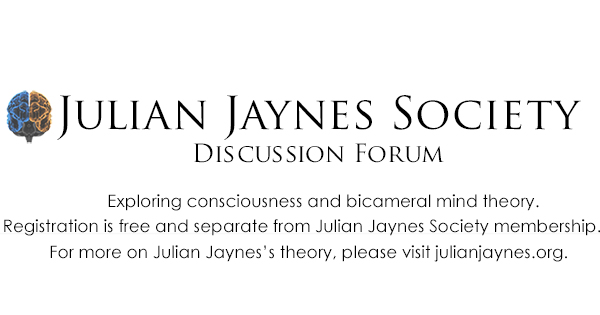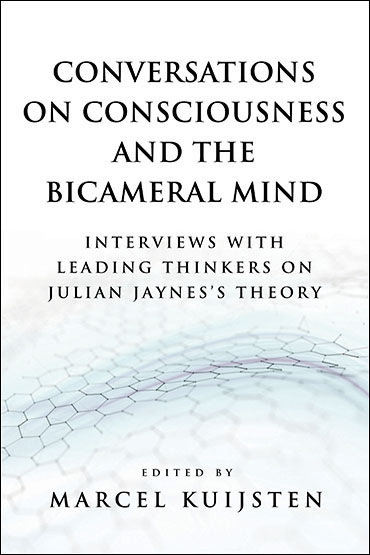When I was a graduate student, we were assigned Noam Chomsky’s review of B. F. Skinner’s Verbal Behavior (Chomsky, Noam [1959]. A Review of B. F. Skinner’s Verbal Behavior. Language, 35, No. 1, 26‒58; Skinner, B. F. [1957]. Verbal Behavior. New York: Appleton-Century-Crofts). The point of the reading was to contrast two very different approaches to human nature: Rationalist/nativist versus empiricist/behaviorist, with Chomsky representing the former, and Skinner the latter. At the time, for this writer Chomsky’s lengthy and highly critical evaluation effectively dismantled the extremes of the behaviorist project. It seemed more than obvious that grammar had to be innate as children are able to automatically generate meaningful sentences that they had never heard before. Positive and negative reinforcement could not account for the explosive creativity of language production; speaking is too complex to be acquired one sentence at a time. Grammar seems to unfold naturally, without the need for being laboriously learned bit by bit. Moreover, the world’s languages appear to display universals that could only have emerged through evolution.
The point of this writing is to not assess the value or future of Chomskyan linguistics, though personally I feel given recent developments it leaves a lot to be desired. Some commentators see a slow death for Chomskyan linguistics, while certain research circles remain committed to a Chomskyan agenda (Despite any retreats or maneuverings to solidify theoretical relevance, the basic premise of Chomsky—an innate language mechanism uniquely possessed by humans—remains. The most recent iteration of the Chomskyan project is that humans possess a Broad Faculty of Language (basic capacity) as well as a Narrow Faculty of Language [syntax]). In any case, debates about the origins of language and consciousness have important parallels. I want to show how deliberations surrounding the value of the Chomskyan approach holds lessons for appreciating Jaynesian consciousness (i.e., subjective introspectable self-awareness, not perception, thinking, or reasoning).
The first lesson concerns the innate-versus-acquired debate (How language relates to Jaynesian consciousness is not the topic of this commentary). Language and consciousness are two very different things, obviously, but for the sake of argument they share several things that open the door to a discussion about some fundamental questions. They raise issues of which capabilities of human mental functioning are deep, invariant, and universal, and what are surface, variant, and particular to place and period. In other words, debates surrounding the origins of language and consciousness take place within a larger argument about how much of human nature is attributable to psychic architecture and how much to sociocultural acquisition. It seems that the sociocultural forces are much more powerful in shaping the human condition than previously assumed, whether it is language or consciousness.
The second lesson is about the necessity of empirical, in-depth, and meticulous research, Chomskyan linguistics has been challenged over the years and more recently attention has been given to languages that arguably challenge Chomsky’s theories. In particular, usage-based linguistics has questioned the existence of abstract grammatical rules, as has functional linguistics, cognitive linguistics, and construction grammar.
Related to the second lesson is the pitfall of overgeneralizing. With both language and mentation, we need to adopt a more nuanced approach, with careful definitions of terminology. Just as “language” needs to be unpacked, so human psychologicality should be analyzed into constituent parts (Even the most committed Chomskyans, presumably, agree that certain aspects of language (e.g., pragmatics) is shaped by cultural‒historical processes). This means that consciousness needs to be separated out and disentangled from mentality in general; it is just one small facet of our psychological operations. Our perceptual apparatus, thinking machinery, and reasoning abilities were crafted by evolutionary forces, and consciousness is not necessary for these psychological processes.
The third lesson concerns how extremely sophisticated human capabilities are propped up by a constellation of disparate mental operations. Much of the critique of Chomskyan theory is inspired by the view that the acquisition of linguistic competency rests on general-purpose mental tools. Or perhaps the brain recruits systems that may not have evolved specifically for language production (related to the Swiss Army knife view of the mind). Certainly, evolution has designed a number of systems that cohere to allow humans to use language; however, it is debatable whether it has engineered an algorithmic universal grammar. Like language, consciousness is undoubtedly subserved by various facets of the psyche and cannot be simply reduced to some neuroanatomical component or computational procedures.
The final lesson concerns how we can be easily tricked, since they are so impressive, by our own capabilities. Like speaking, consciousness seems to arise automatically and effortlessly. This leads many to assume that something so apparently natural—like breathing—must be neurologically inbuilt rather than culturally acquired. We need to guard against such assumptions, and recent work on language acquisition as well as the Jaynesian theory that consciousness developed cultural-historically offer us correctives. Jaynesian consciousness is not neurologically baked-in; it was historically constructed and is culturally transmitted. Consciousness was sociolinguistically scaffolded upon mental vocabularies (which were non-existent or weakly developed before the first millennium BCE). For the child consciousness is developmentally put in place by social interaction, i.e., consciousness is learned anew with each generation.
What Challenges to Chomskyan Linguistics Can Teach Us about Jaynesian Consciousness
Posts by anthropologist, mental health counselor, and author Brian J. McVeigh on Julian Jaynes's theory and related topics.
Return to “Brian J. McVeigh's Random Thoughts”
Jump to
- JJS Forum
- ↳ General Discussion
- ↳ News Items Related to Jaynes's Theory
- ↳ Book Discussion: The Origin of Consciousness and Julian Jaynes Society Publications
- ↳ Myths, Misconceptions, and Fact Checks About Julian Jaynes's Theory
- ↳ Brian J. McVeigh's Random Thoughts
- ↳ Julian Jaynes
- ↳ Conferences, Events, and Local Discussion Groups
- ↳ Lecture Discussion
- ↳ Interview and Q&A Discussion
- ↳ 1.0. Hypothesis One: Consciousness Based On Language
- ↳ 1.01. Hypothesis One: Consciousness Based On Language | Subtopic: Consciousness & Dreams
- ↳ 1.02. Hypothesis One: Consciousness Based On Language | Subtopic: Consciousness in Children
- ↳ 1.03. Hypothesis One: Consciousness Based On Language | Subtopic: Consciousness and AI
- ↳ 2.0. Hypothesis Two: The Bicameral Mind
- ↳ 2.1. Hypothesis Two: The Bicameral Mind | Subtopic: Auditory Hallucinations in Normal Adults
- ↳ 2.2. Hypothesis Two: The Bicameral Mind | Subtopic: Hallucinations & Imaginary Companions in Children
- ↳ 2.3. Hypothesis Two: The Bicameral Mind | Subtopic: Hypnosis, Possession & Altered States of Consciousness
- ↳ 2.4. Hypothesis Two: The Bicameral Mind | Subtopic: Religion & the Bicameral Mind
- ↳ 2.5. Hypothesis Two: The Bicameral Mind | Subtopic: Schizophrenia
- ↳ 2.6. Hypothesis Two: The Bicameral Mind | Subtopic: The Mentality of Pre-Literate & Pre-Modern Peoples
- ↳ 3.0. Hypothesis Three: Dating the Development of Consciousness
- ↳ 4.0. Hypothesis Four: Jaynes's Neurological Model for the Bicameral Mind
- ↳ The Bicameral Mind in Fiction, Film & Popular Culture
- ↳ Information for Students


